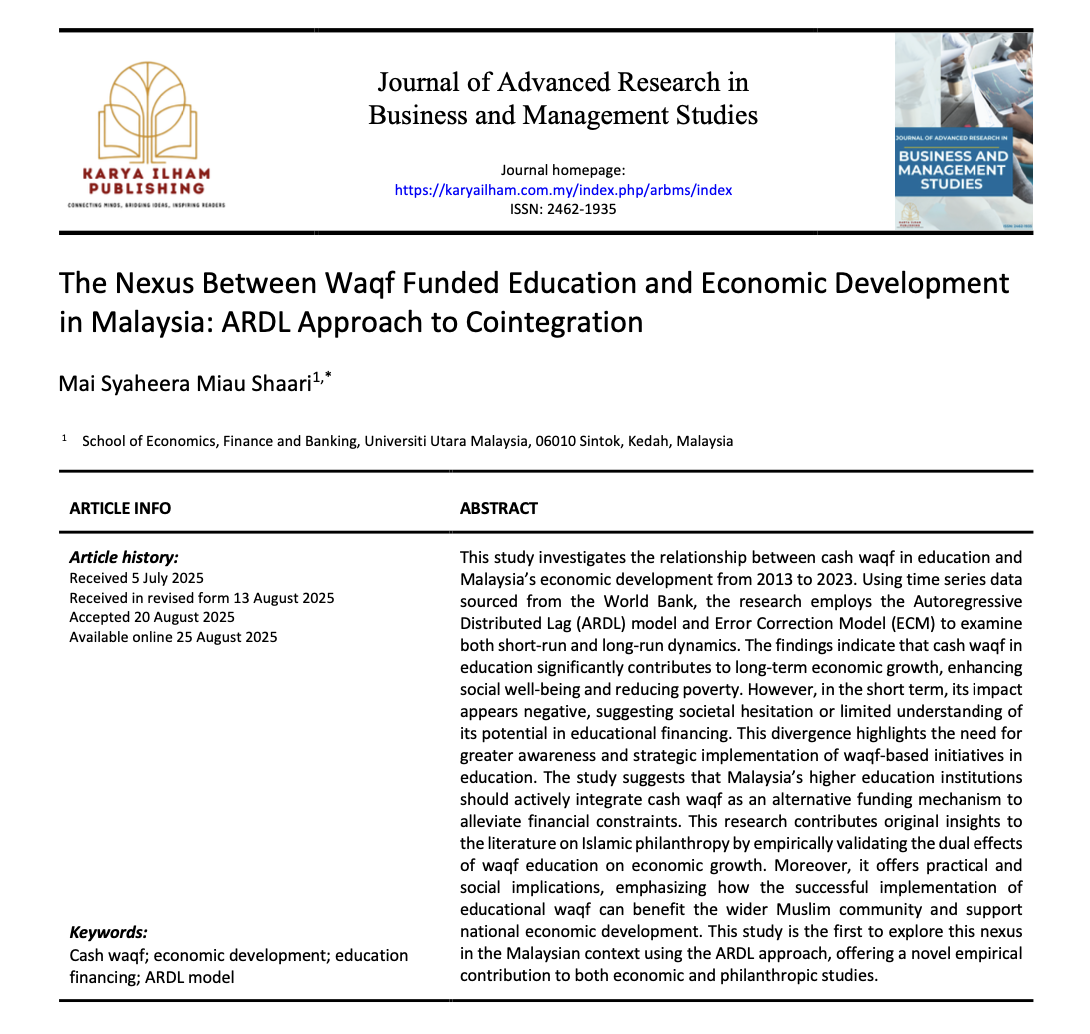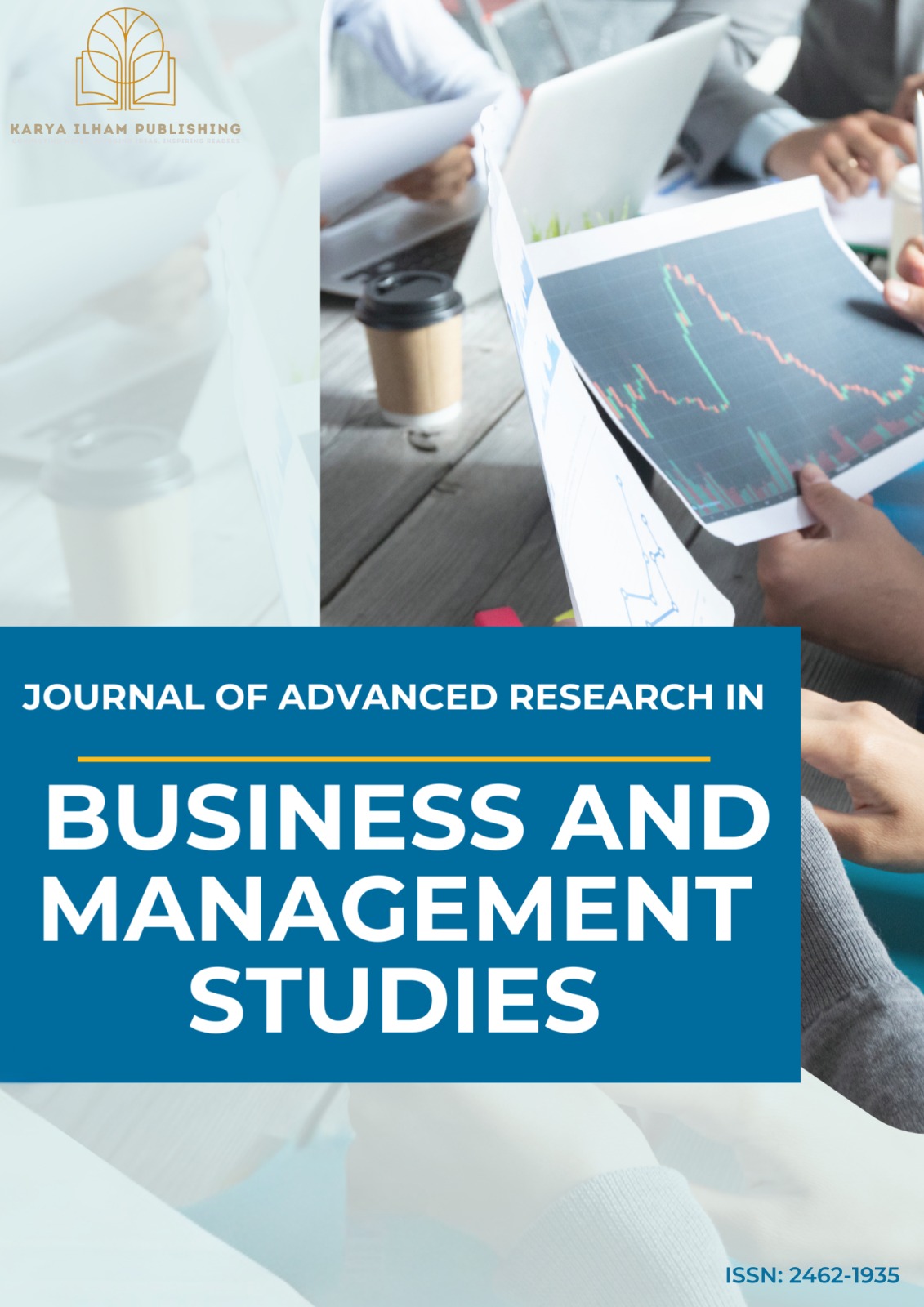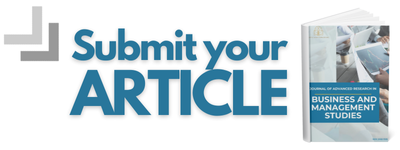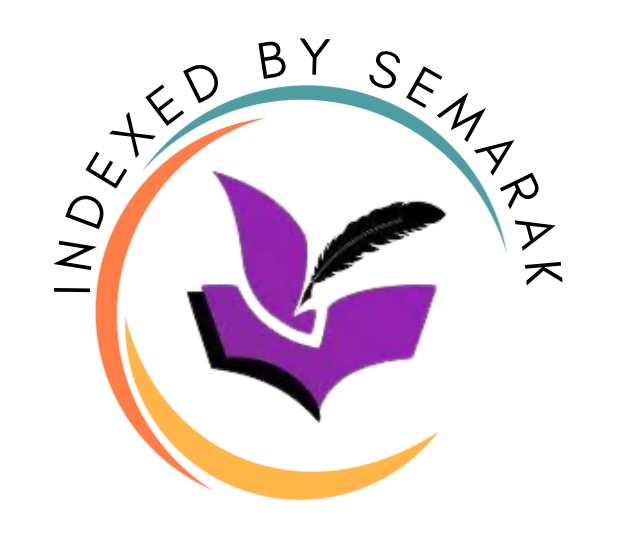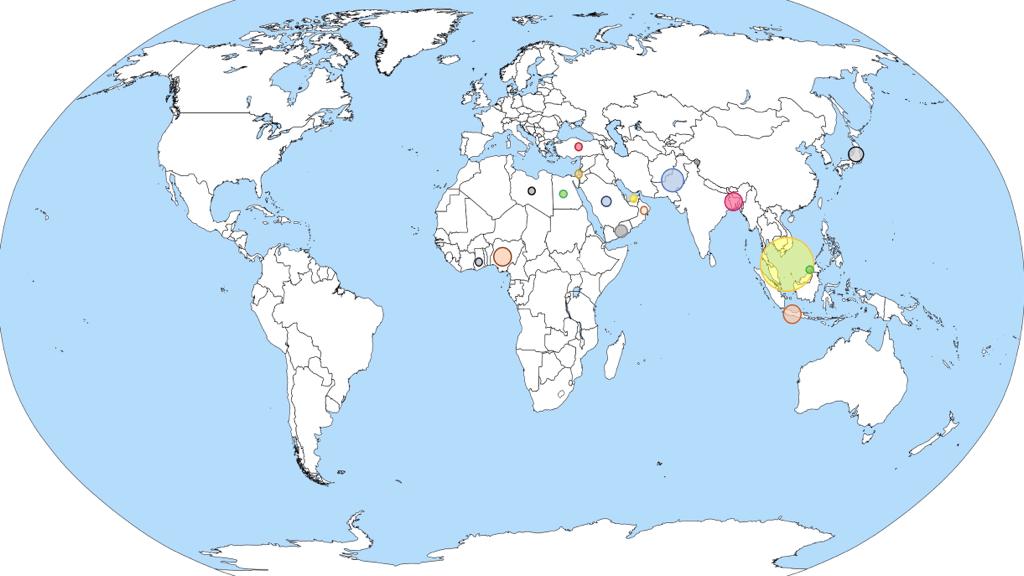The Nexus between Waqf Funded Education and Economic Development in Malaysia. ARDL Approach to Cointegration
DOI:
https://doi.org/10.37934/arbms.39.1.219227Keywords:
Cash waqf, economic development, education financing, ARDL modelAbstract
This study investigates the relationship between cash waqf in education and Malaysia’s economic development from 2013 to 2023. Using time series data sourced from the World Bank, the research employs the Autoregressive Distributed Lag (ARDL) model and Error Correction Model (ECM) to examine both short-run and long-run dynamics. The findings indicate that cash waqf in education significantly contributes to long-term economic growth, enhancing social well-being and reducing poverty. However, in the short term, its impact appears negative, suggesting societal hesitation or limited understanding of its potential in educational financing. This divergence highlights the need for greater awareness and strategic implementation of waqf-based initiatives in education. The study suggests that Malaysia’s higher education institutions should actively integrate cash waqf as an alternative funding mechanism to alleviate financial constraints. This research contributes original insights to the literature on Islamic philanthropy by empirically validating the dual effects of waqf education on economic growth. Moreover, it offers practical and social implications, emphasizing how the successful implementation of educational waqf can benefit the wider Muslim community and support national economic development. This study is the first to explore this nexus in the Malaysian context using the ARDL approach, offering a novel empirical contribution to both economic and philanthropic studies.
